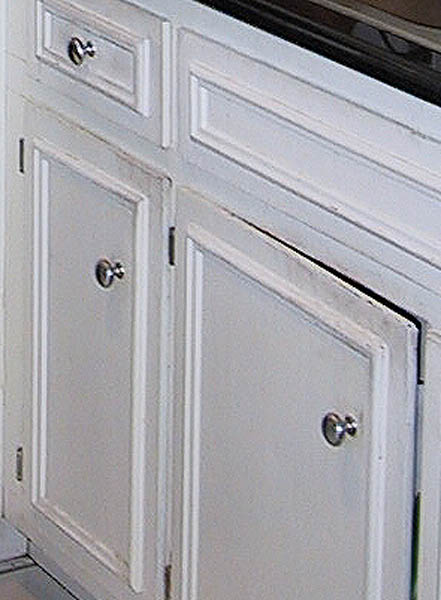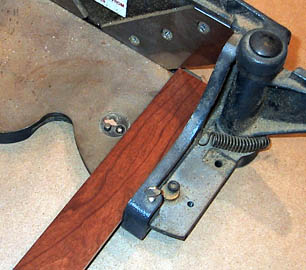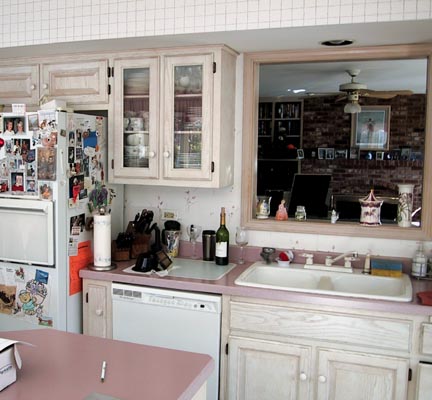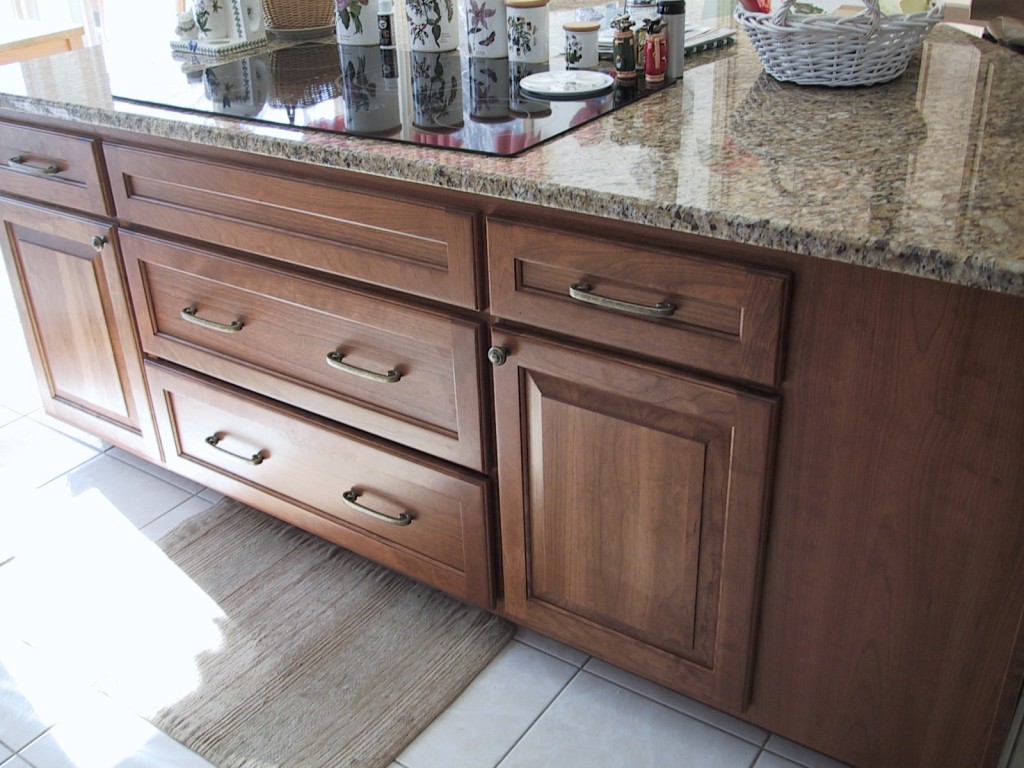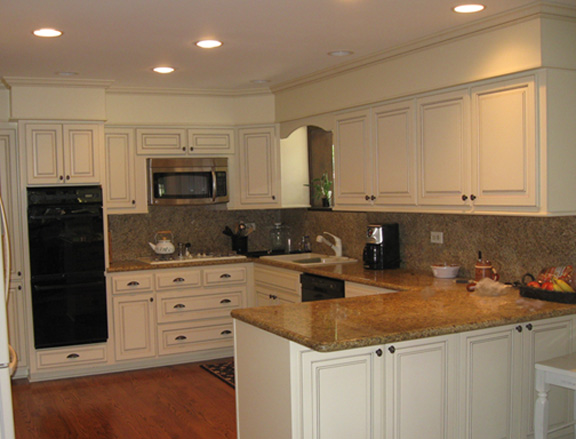Painting kitchen cabinets is a staple of an HGTV, budget-friendly, kitchen makeover. And while I love HGTV, I have to admit, I’m not a big fan of painting kitchen cabinets. There is a time and place where it makes sense, but it’s not as durable or as easy to do as you might think.
When Does Painting the Kitchen Cabinets make sense?
If you plan on staying in your home less than 5 years, it might be a good solution.
Even if you have the work professionally done and the cabinets are properly sanded, primed and several thin coats of a premium grade cabinet paint are applied, you’re still looking at a useful life of about 5 years. If you plan on moving before that, then painting the cabinets might be a good fix.
if you’re going for a “shabby chic” look
If you paint the cabinets a base color, topcoat with a different color and sand and scrape the corners and edges to allow the base to show through you can achieve a worn, vintage look. The advantage to this is when you get the inevitable scrapes and dings, it just looks better.
In a lake house or weekend cottage
The kitchen in a weekend getaway home doesn’t see the daily use that your main home does, so painted kitchen cabinets will hold up longer than they will in your main home.
When is Painting Kitchen Cabinets a Bad Idea?
If you’re a neat freak
It doesn’t matter if the paint can says it’s scrubbable. The kitchen cabinets get more use than any other woodwork in he house. Weekly wiping, cleaning and scrubbing will take it’s toll after a few years.
if you plan on being in your home for more than 5 years
With a 5 year or longer time frame, painting kitchen cabinets is a chore you’ll have to repeat again and again. And whatever you do, don’t even think about installing granite countertops on painted cabinets or you’ll be locked into the repaint cycle for a very long time.
Painting Kitchen Cabinets: Factory Finish vs. Repainted
After all this discussion about the pitfalls of painted cabinets, does the same hold true for factory-finished painted cabinets? In a word – no. The process that is used in a modern cabinetmaking facility can’t be duplicated in a local shop. One of my favorite cabinet component suppliers, Walzcraft Industries in LaCrosse, WI achieves their solid color finish with a catalyzed conversion varnish with an integral pigment applied on a state-of-the-art finishing line and UV cured to a hardness that just isn’t achievable with a solvent based finish.
So if you’re moving, have a weekend cottage or like the shabby, vintage look – painting kitchen cabinets might be a good idea. But if you like neat and clean and plan on staying for awhile, put down the paint brush.
-JP

